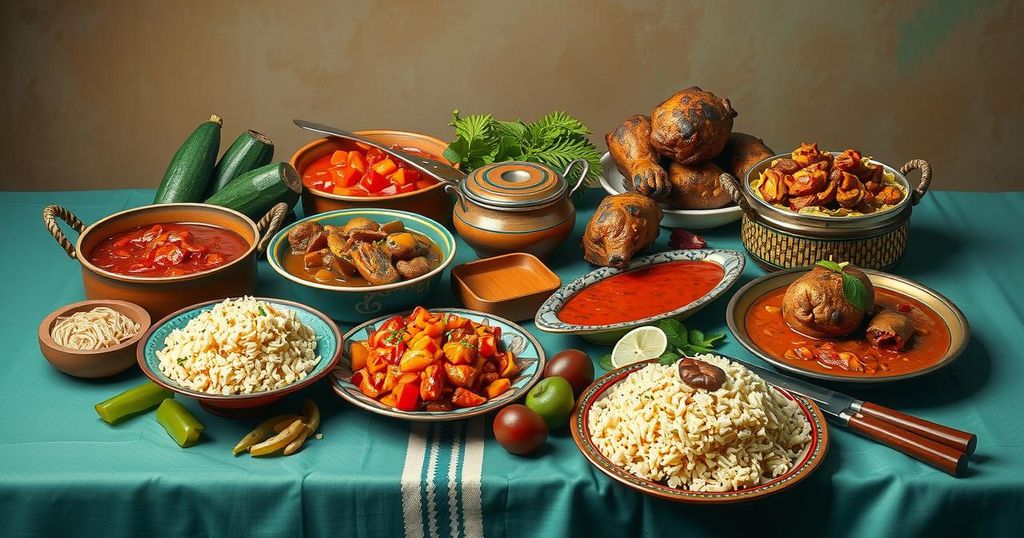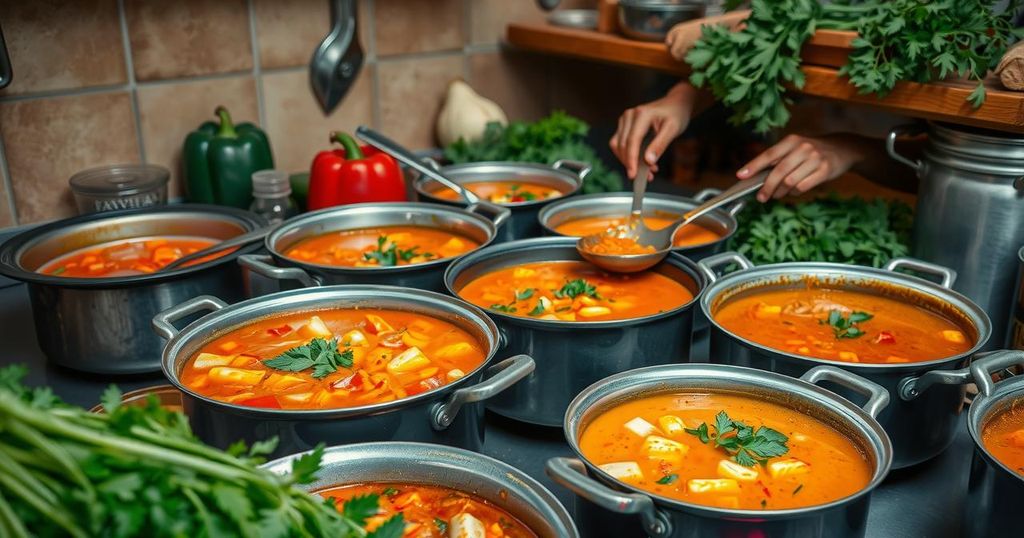Nigerian Foods Prohibited from Importing to the UK: A Guide for Travelers
Travelers from Nigeria to the UK must avoid bringing specific food items due to strict import regulations designed to protect public health and agriculture. Prohibited items include meats, dairy, unprocessed shellfish, ungutted fish, various fresh produce, and raw nuts and seeds. It is essential to check regulations before travel to prevent confiscation and delays at customs.
Traveling from Nigeria to the United Kingdom is an exhilarating adventure; however, it is essential to be informed about specific food items that are restricted or prohibited at the UK border. The UK mandates strict import regulations to protect public health, preserve local agriculture, and mitigate the spread of pests and diseases. Consequently, certain Nigerian foods are not permitted, and understanding these limitations can prevent complications during customs inspection.
To facilitate smooth travel without the risk of food confiscation, fines, or delays, travelers should keep abreast of the latest import regulations prior to their journey. Regulations are subject to change, so it is prudent to verify the current UK import guidelines. Moreover, airlines and travel operators often impose their own food transport rules; confirming these before travel is advisable for a hassle-free experience.
The following are six Nigerian foods that travelers cannot bring into the UK, along with explanations for each restriction:
1. Meat and Meat Products: Bringing any meat—whether raw, cooked, dried, or processed—is strictly prohibited. This includes beef, chicken, goat meat, suya, kilishi, and meat-based dishes such as nkwobi. These regulations serve to avert potential outbreaks of animal diseases, including foot-and-mouth disease.
2. Milk and Dairy Products: Items such as milk, cheese, butter, and yogurt are banned. An exception is made for unopened, branded powdered infant milk or special medical food; these are permissible if they do not require refrigeration. These guidelines are intended to prevent the introduction of harmful bacteria and diseases.
3. Unprocessed Shellfish and Snails: Travelers cannot bring in raw shellfish such as mussels and oysters, or live snails. Snails can only be imported if they are shelled, cooked, and preserved, thus ensuring food safety and preventing the introduction of invasive species.
4. Ungutted Fresh Fish: You may carry up to 20kg of fish per person, but fresh fish must be gutted before departure. It is permitted to bring in commercially packaged processed fish—dried, cooked, cured, or smoked. However, whole, unprocessed fish are prohibited.
5. Fresh Fruits and Vegetables: Generally, most fresh fruits and vegetables are not allowed without a phytosanitary certificate from the plant health authorities of the departure country, certifying them as free from pests and diseases. This encompasses fruits like watermelon and papaya, as well as various berries and specific leafy vegetables unless certified.
6. Raw Nuts and Seeds: Most unpeeled, unpackaged, and unprocessed nuts and seeds require a phytosanitary certificate to be imported into the UK. This includes raw groundnuts, cashews, almonds, and melon seeds (egusi), as these products may potentially harbor pests or diseases.
In summary, travelers from Nigeria to the UK must be acutely aware of the stringent regulations concerning food imports. Among the prohibited items are various meats, milk and dairy products, unprocessed shellfish, ungutted fresh fish, most fresh fruits and vegetables, and raw nuts and seeds. Staying informed of these restrictions not only facilitates smoother travel but also helps avoid complications at customs. Therefore, verifying the latest regulations before your journey is highly advisable.
Original Source: businessday.ng




Post Comment